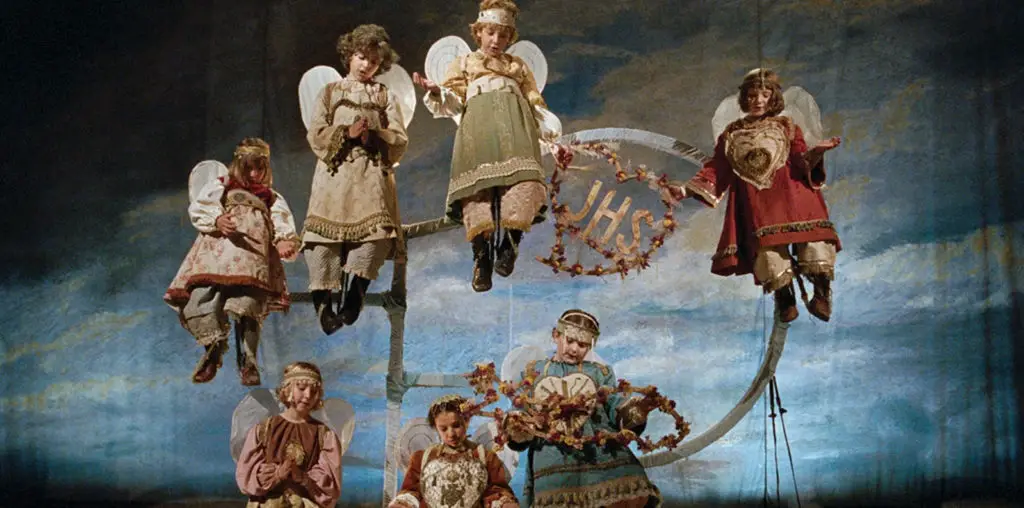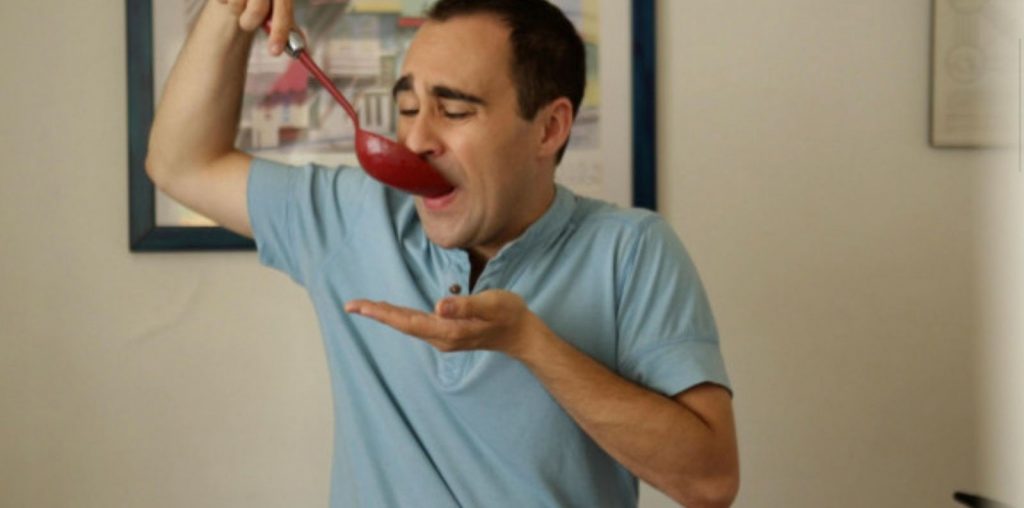
It’s a ridiculously drool-worthy proposition: take the deliriously entertaining Daft Punk album “Discovery” and use it as the soundtrack for a Leiji Matsumoto-designed sci-fi adventure. It’s a concept so cool in fact, that even its most sublime realization cannot quite achieve its lofty potential. That said, “Interstella 5555: The 5tory of the 5ecret 5tar 5ystem” still comes fairly close to that giddy, shiny, retro-futurist musical space opera I imagined upon first hearing “Discovery” back in 2001. Specifically, I remember envisioning the album’s fourth track, “Harder, Better, Faster, Stronger” being performed by a group of robotic musicians at the garishly psychedelic Restaurant at the End of the Universe. In fact, if I had $100 mil, this is the movie I would make first. Think “Pluto Nash” as directed by Sofia Coppola. In any case, I don’t have $100 mil and Daft Punk already beat me to the punch. While I imagined an expensive, ultra risky live-action film, Thomas Bangalter and Guy-Manuel de Homem-christo, being those diabolically clever robots that they are, mined their childhood love of anime for this inspired dream-project. Behold: “Interstella 5555”, the world’s first animated House Musical.
Let’s get one thing clear: Daft Punk’s “Discovery” is not the background music for some independently imagined sci-fi saga, it is rather the soundtrack for it, in the truest sense of the word. According to the duo, the music and the story were written simultaneously from the very beginning. Early on in the process it was apparent that the only thing missing in the equation was the visual brilliance of their childhood anime hero, Matsumoto, creator of such classics as “Albator” and “Battleship Yamato” (affectionately remembered as “Starblazers” in the states). Two years and countless trips between Paris and Tokyo later, this one-of-a-kind, dialogue-free story of the biggest band in the universe finally arrived, with disappointingly little fanfare in the U.S. Well, consider this the fanfare.
As stated, “Interstella 5555” tells the story of the most beloved rock band in a star system millions of light-years from Earth. This nameless band, whose blue-skinned humanoid members include lead guitarist Arpegius, keyboardist/vocalist Octave, gorgeous bassist Stella, and diminutive drummer Baryl, have just finished entertaining the joyous denizens of their home planet with a exhilarating rendition of their hit “One More Time” when they are kidnapped by a menacing legion of alien invaders. The alien invaders, who turn out to be earthlings acting out the orders of the evil manager Earl De Darkwood, bring their captives to Earth, where it is expected they will earn their new master a fortune as the biggest band here as well. Once on Earth, Darkwood and his minions de-alienize the band by “painting” over their blue skin with more earthy tones, transforming their alien memories into humanized versions of them, and outfitting them in fashionable threads more befitting rock stars of this planet. With their transformation complete, the now zombie-like musicians, re-christened The Crescendolls, are unleashed on the world, immediately explode onto the charts, and even win fancy awards (beating out their contemporaries Daft Punk!). Meanwhile, the band’s real manager Shep, who’s also Stella’s boyfriend, has followed his friends to Earth in their guitar-shaped spaceship and schemes to rescue them before they are lost to him forever.
All this plot and not a word of dialogue. Again, “Interstella 5555” is entirely driven by the songs of “Discovery”, played in their entirety and in order. It’s truly an inspired concept that works at least most of the time. With each song corresponding to a key moment in the film and Daft Punk not known for their subtle mood music, the plot moves at a rapid clip. Aside from the breath-catching, quieter moments of “Nightvision” and “Something About Us”, the film advances breathlessly along and entirely foregoes conventions like characterization and exposition. And that’s exactly what makes it so refreshing and unique. If you’re a Daft Punk fan, then the film at the very least provides a beautifully illustrated world of visual wonders (a bizarre alien city, heady daydreams, etc.) to immerse yourself in. This is a true party movie, playable with either a houseful of grooving freaks or in the wee hours of the morning when you’ve still got the party in you long after its over. The best moments include the glorious interstellar boogie of “One More Time”, the shimmering disco ballad “Digital Love”, and the funky-as-hell robotic thump of “Harder, Better”. But like the album on which it’s based, “Interstella 5555” loses some of its initial snap-crackle-pop about mid-way through. I guess it’s inevitable that when a film begins as supremely blissful as this one, the end is bound to seem somewhat anticlimactic. Still, as far as I’m concerned, may the party never end.

